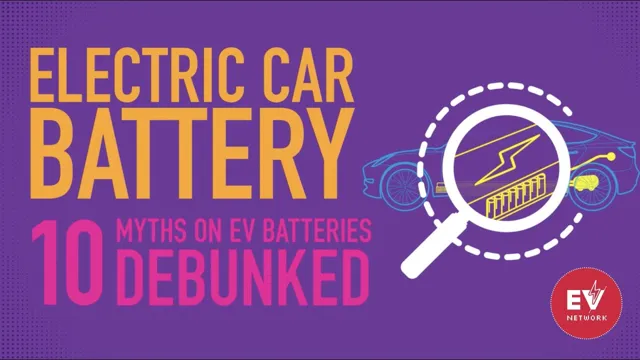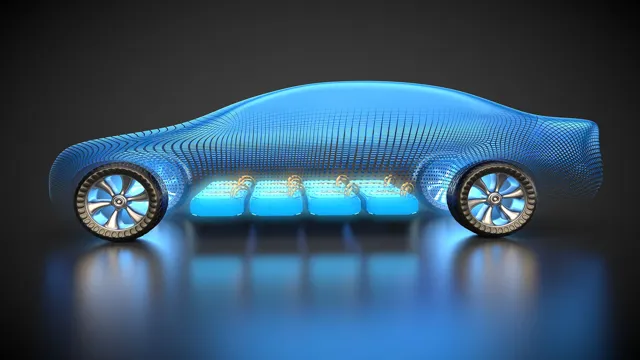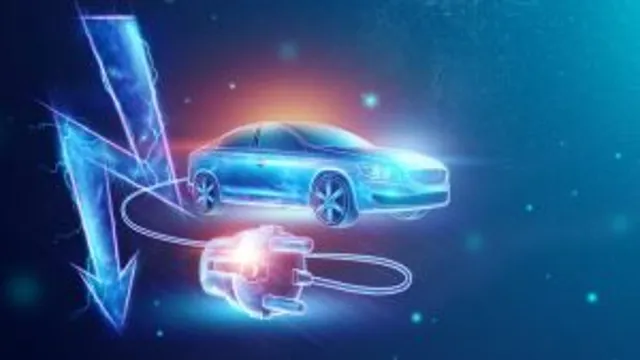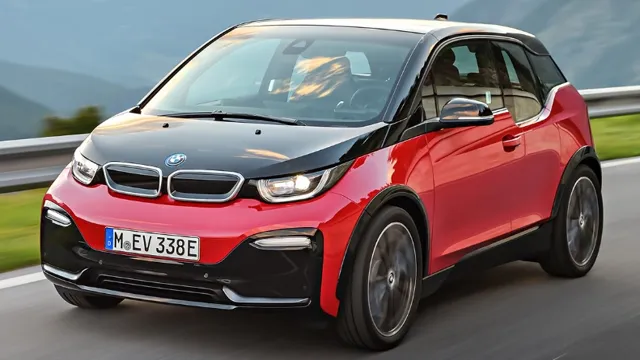Unraveling the Top 5 Electric Car Battery Myths: Separating Fact from Fiction
Do electric car batteries really need to be replaced every few years? Are they less reliable than gas-powered car batteries? These are just a few of the common myths surrounding electric car batteries. As more and more people are making the switch to electric vehicles, it’s important to dispel these misconceptions and separate fact from fiction. In this blog post, we’ll be taking a closer look at some of the most common electric car battery myths and setting the record straight.
So let’s dive in and bust some myths!
Myth: You Have to Replace the Battery Often
There is a common myth about electric cars that claims their batteries need frequent replacement. The truth is, electric car batteries are built to last and are designed to withstand the normal wear and tear of daily use. Studies have shown that the average lifespan of an electric car battery is around 8 to 10 years, which is as long or longer than most traditional car batteries.
Additionally, advances in battery technology continue to improve the lifespan and performance of electric car batteries. So, if you’re thinking about purchasing an electric car, don’t let the fear of frequent battery replacement deter you. The reality is, electric car batteries are reliable and can provide years of trouble-free use.
Data: Electric car batteries can last up to 20 years
“Electric car batteries” If you’re considering making the switch to an electric vehicle, one of the myths you’ve probably heard is that you’ll need to replace the battery frequently. However, the reality is much different. In fact, electric car batteries can last for up to 20 years with proper care and maintenance.
Of course, this timeframe can vary depending on a variety of factors, such as how often you charge the battery, how hard you drive the vehicle, and the specific make and model of the car. But overall, electric car batteries are designed to have a longer lifespan than traditional combustion engine batteries. Additionally, many automakers offer warranties on their electric car batteries that can cover repairs or even full replacements if needed.
So if you’re hesitant about making the switch to an electric vehicle because you’re worried about battery life, rest assured that this is not a problem you need to worry about.

Myth: Electric Cars Are as Bad as Gas Cars for the Environment
One of the most common electric car battery myths is that electric cars are just as bad for the environment as gas-powered vehicles. However, this couldn’t be further from the truth. While electric cars do use energy, they emit significantly fewer pollutants and greenhouse gases than traditional combustion engines.
Additionally, many electric car batteries are designed to be recycled or reused, reducing the amount of waste sent to landfills. It’s also worth noting that as renewable energy sources like wind and solar become more prevalent, the environmental benefits of electric cars will only continue to grow. So if you’re looking to make a positive impact on the environment while still enjoying the convenience of a personal vehicle, investing in an electric car could be a great option.
Data: Studies show electric cars have lower lifetime carbon emissions
The idea that electric cars are just as bad for the environment as gas cars is simply a myth. Numerous studies have shown that over the course of their lifetime, electric cars produce significantly lower carbon emissions than gas cars. This is largely due to the fact that electric cars don’t produce any emissions while driving, whereas gas cars constantly emit greenhouse gases.
It’s true that the production of electric car batteries does have a carbon footprint, but this is offset within a few years of driving an electric car. Plus, as renewable energy sources become more prevalent, the carbon footprint of electric car production will continue to decrease. Overall, it’s clear that electric cars are the way of the future when it comes to reducing our carbon emissions and protecting the environment.
So don’t be fooled by the myth – if you want to make a positive impact on the planet, consider going electric.
Myth: You Can’t Drive an Electric Car Far
If you think electric cars can’t go far, you’re in for a surprise. One of the most popular myths about electric cars is that they have a limited driving range. However, with advancements in battery technology, electric cars can now go further than ever before.
Many modern electric cars can travel up to 300 miles on a single charge, which is more than enough for most daily commutes. And with the availability of supercharging stations across the country, you can easily stop and recharge your car on long road trips. The reality is that electric cars aren’t just for short trips; they can handle long drives just as well as traditional cars.
So don’t let this myth deter you from making the switch to an electric car; they’re more reliable and efficient than ever before, making them the eco-friendly choice for any driver.
Data: Most modern electric cars have a range of 200-300 miles per charge
Electric cars have come a long way in recent years and one of the often perpetuated myths about them is that they can’t be driven far. However, the truth is quite the opposite. In fact, most modern electric cars have a range of 200-300 miles per charge, which is more than enough for most daily commutes and road trips without needing to stop for a recharge.
Of course, this range varies depending on the car’s model and battery size, but it is safe to say that electric cars are becoming more and more capable of covering longer distances. With the increasing number of charging stations being implemented across the country, electric vehicles are becoming more accessible than ever before, making it easier to travel long distances without worrying about running out of power. In short, the myth that electric cars can’t drive far is just that, a myth.
Myth: It Takes Forever to Charge an Electric Car
One of the most common myths about electric cars is that they take forever to charge. While it’s true that electric car batteries take longer to charge than a gasoline car can refuel, the time it takes to charge depends on the specific vehicle and the charging station used. For example, a Level 1 charging station, which is typically used in residential settings, can take anywhere from 8 to 20 hours to fully charge an electric car battery.
However, a Level 3 charging station, also known as a DC fast charger, can provide an 80% charge in as little as 20 to 30 minutes. It’s important to note that not all electric cars are compatible with all types of charging stations, so it’s crucial to check the car’s specifications before choosing a charging station. While charging an electric car isn’t as quick as refueling a gasoline car, the technology has come a long way in recent years, and it’s much more convenient than many people might think.
Data: Fast charging technology can give you a significant charge in 30 minutes
When it comes to electric cars, one of the most common myths is that they take forever to charge. However, this simply isn’t true anymore. Thanks to advancements in fast charging technology, you can now give your electric car a significant charge in just 30 minutes.
This means you can top up your car’s battery while grabbing a cup of coffee or running errands, making electric cars much more practical for everyday use. Of course, the exact time it takes to charge your car will depend on a variety of factors, including the size of your car’s battery, the current charge level, and the charging station’s output. But in general, the days of waiting hours for your car to charge are long gone.
So don’t let the fear of long charging times hold you back from making the switch to an electric car. With fast charging technology, it’s easier than ever to keep your car powered up wherever you go.
Myth: Electric Cars are Gutless
There is a common misconception that electric cars lack the power and performance of their gas-powered counterparts. However, this is simply not true. Electric cars have come a long way in recent years, and their batteries are now capable of delivering high levels of torque and acceleration that can rival even the most powerful combustion engines.
In fact, electric cars have instant torque, whereas gas-powered cars have to build up revs before delivering maximum power. This means that electric cars can accelerate quickly and smoothly, making them perfect for city driving. Additionally, some of the world’s fastest cars are now electric, further debunking the myth that electric cars are gutless.
So, don’t be fooled by outdated electric car battery myths – electric cars are more powerful than ever before!
Data: Electric cars can accelerate faster than gas cars due to the nature of electric motors
When it comes to performance, there’s a persistent myth that electric cars are gutless. However, this couldn’t be further from the truth. Electric cars can accelerate faster than gas cars due to the nature of electric motors.
Unlike gas engines, which need to build up RPMs to create power, electric motors provide instant torque. This means that as soon as you put your foot down, an electric motor will respond immediately, giving you seamless acceleration. In fact, the Tesla Model S is a great example of this.
With Ludicrous Mode enabled, the Model S can go from 0 to 60 mph in just 4 seconds – faster than nearly every gas-powered car on the market. Of course, not all electric cars are created equal in terms of performance.
However, this isn’t because they lack power – it’s because their designers have prioritized other factors, like range or affordability. Ultimately, the idea that electric cars are gutless is based on outdated stereotypes. As battery technology continues to improve and more automakers invest in electrification, we’re likely to see even more powerful and responsive electric cars hitting the market.
So if you’re someone who enjoys driving, don’t overlook electric cars because of performance – they might surprise you.
Myth: Electric Cars are Too Expensive
One of the biggest myths surrounding electric cars is that they are too expensive. While it is true that electric cars can be pricier than gasoline vehicles, the cost savings over time make them a smart investment for anyone looking to save money in the long run. The most expensive component of an electric car is its battery, but prices for these batteries are dropping rapidly.
Additionally, many governments offer tax incentives and rebates for those who purchase an electric vehicle, making them more affordable for average consumers. Ultimately, the cost of an electric car can vary based on factors like the specific model, range, and features, but with some research and smart shopping, anyone can find an electric car that fits their budget. So, don’t let the myth of expensive electric cars hold you back from making the switch to a cleaner, more sustainable mode of transportation.
Data: While the upfront cost may be higher, the cost of ownership over time is lower for electric cars
One common myth about electric cars is that they are too expensive. While it is true that the upfront cost of an electric vehicle may be higher than a traditional gasoline car, the long-term cost of ownership is much lower. This is largely due to the fact that electric cars require less maintenance and have lower fuel and operating costs.
In the long run, electric cars are actually more affordable and can save you quite a bit of money. Additionally, electric cars typically have a longer lifespan than traditional cars, which means you’ll be able to use it for more years before needing to replace it. So, while it may seem like a big investment upfront, switching to an electric car can actually save you a significant amount of money in the long run.
Conclusion
In conclusion, the myths surrounding electric car batteries are just that – myths. They may have been rooted in some truth in the past, but with advancements in technology and increased investment in the electric vehicle market, these ideas are no longer valid. It’s time to put these myths to rest and embrace the clean and efficient future of electric transportation.
Just remember, when it comes to electric car batteries, don’t believe everything you hear – always do your research and stay charged with the facts.”
FAQs
Is it true that electric car batteries lose their charge quickly?
No, electric car batteries can hold their charge for a considerable amount of time, sometimes even up to a week or more.
Is it safe to drive an electric car with a damaged battery?
No, it is not safe to drive an electric car with a damaged battery. It can cause a short circuit or fluid leaks, which can be dangerous.
Will a damaged electric car battery affect the performance of the vehicle?
Yes, a damaged electric car battery can affect the car’s performance, including its range, acceleration, and overall efficiency.
Do electric car batteries need to be replaced frequently?
No, electric car batteries have a long lifespan and can last up to 10 years or more. However, their performance may degrade over time and may require maintenance or replacement.





